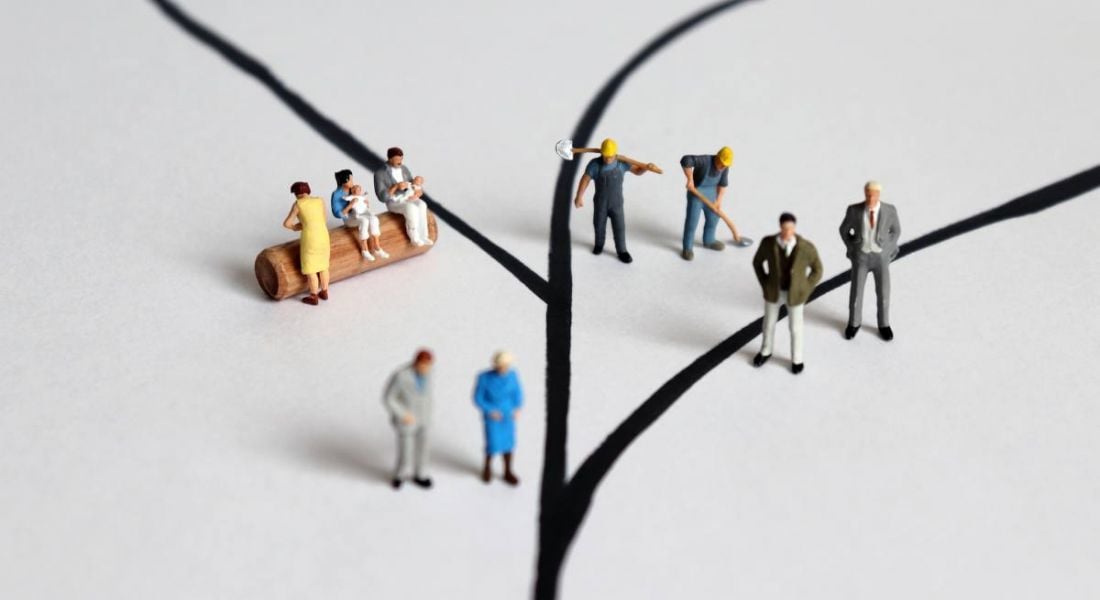It has taken a pandemic to reveal the true caretakers who underpin our economy, and ignoring them up to now has left them underappreciated and underpaid. It’s time for a rethink, writes Elaine Burke.
We’ve reached three months since An Taoiseach Leo Varadkar, TD, addressed the nation with measures to be put in place to mitigate the spread of the coronavirus. On the macro level, these three months have felt like a decade of historic events; but, on a personal level, you might be wondering where the time has gone.
We’re now at a new stage of the pandemic. The road to re-opening has been accelerated and, 128 days since a general election, we almost have a new Government for it. And while it might feel like a new beginning or even a restart – the long foretold return to ‘normal’ – what we are about to enter into is the long haul of coronavirus mitigation.
We’ve cut our teeth on Covid for the past three months, and now we’ll be expected as a society to take all that we’ve learned about how to collectively contain a virus and sustain that for the rest of the year – perhaps much longer. Because until there is a vaccine, and said vaccine has been administered on a massive global scale, there is no normal to return to.
For workers who can, they will likely remain working from home up to 2021, at least. In that time, you will find some businesses will have irrevocably changed in order to adapt. New revenue and service models introduced under the shadow of Covid-19 might well shed light on a path for the future. Meanwhile, widespread remote and flexible working has opened up a world of opportunity for employees and employers alike, and long may it continue.
‘Other workers are enabled to go to work because of childcare workers, not the other way around’
However, come September, those trying valiantly to work from home and assist young children with schooling may not find the relief they have been waiting for. The goal has been set for schools to fully reopen, but how exactly that is expected to happen in line with public health advice remains a mystery.
Guidelines are expected at the end of this month, and Fine Gael parliamentary party chair Martin Heydon has said that the cabinet is determined that every child will be back at school in September “because everybody will be back at work in September”, which is a textbook example of putting the cart before the horse.
Unfortunately, this backward thinking on childcare is widespread. Other workers are enabled to go to work because of teachers and childcare workers, not the other way around. You can see the lack of acknowledgement of this fact in the way Irish childcare services were creaking long before the pandemic.
In fact, as University of Limerick’s Mary Moloney explained, “In spite of an unprecedented 141pc increase in investment during Katherine Zappone’s tenure as Minister for Children, the sector is chronically underfunded and public spending as a percentage of GDP is the lowest of any OECD country.”
Writing in The Irish Times today, the childcare lecturer added: “Early childhood educators are amongst the lowest paid of all professional groups, with a staggering 61pc of those working in the sector on 12 March, when settings first closed, earning less than the living wage of €12.30 per hour. There is a perception that the sector is undervalued and underappreciated.”
Much like many aspects of the modern working model, the systems in place are anachronistic. Childcare provision wasn’t needed to prop up economies when workers were mainly the men of the households, but that time has long passed.
The propensity for continuing things as they always were without pausing to rethink is why it takes a 21st century pandemic for us to take off the blinkers and realise that school has become de facto childcare for working parents, and childcare outside of that system has long been an ignored challenge to economic prosperity.
President Michael D Higgins, at least, gets it. In an appearance on this season’s final episode of The Late Late Show – in front of the Starry Plough, no less – he told host Ryan Tubridy, “We have to really think about care.”
Ruminating on the nature of work, and the work that we cannot do without, Higgins expressed his hope for “an opportunity to make a deep reflection” and not just talk about the kind of work that we need to merely survive, but to flourish.
“Is it not the case that care work, for example, wasn’t given the same status as other work? It certainly wasn’t remunerated enough,” he said frankly.
“We should actually come out of the Covid having completely rethought out the importance of caring. And, if you can do that, that gives you a balance.”
Now there’s a roadmap worth accelerating.
Want stories like this and more direct to your inbox? Sign up for Tech Trends, Silicon Republic’s weekly digest of need-to-know tech news.




